June Newsletter
Good Afternoon,
We hope you and your families are well and have learnt to adapt to the changing restrictions as our world starts to slowly return to the new normal, whatever that maybe. Business at Tayper continues as per normal and we are all here to provide support and help you with your logistics movements, questions and queries.
Today’s newsletter includes a wide range of topics:
- Brown Marmorated Stink Bug Season – (end of 2019/20 season & start of 2020/21 season)
- General Rate Increase (GRI) – effective 1st July 2020
- Australian Industrial Chemicals Introduction Scheme (AICIS) – effective 1st July 2020
- Onshore Biosecurity Levy – Government will not proceed
- Free Trade Agreement with Indonesia
- Asbestos Risk Management
Brown Marmorated Stink Bug Season:
2019-2020 Season is now complete; however, the 2020-2021 Season is fast approaching.
The new season details have not yet been finalised and published by the Department of Agriculture, Water & the Environment (DAWE) however they have advised there will be an addition of three new target risk countries. The new season measures will otherwise remain the same for the 2020/21 season:
- Shipped from 1 September 2020 and arriving in an Australian Territory by 31 May 2021
- Target high risk and target risk goods manufactured in, or shipped from the target risk countries are subject to the BMSB seasonal measures
- Targeted goods remain the same
- Target countries remain the same with the addition of Portugal, Moldova and Ukraine
- Flat Rack, Open Top and Break Bulk consignments, all still require mandatory offshore treatment
- FCL (six sided) containers can be treated onshore or offshore. Noting: Offshore is preferred as containers overpacked including wrapped goods are highly likely unsuitable for treatment upon arrival and may be directed for export at the importers cost
- Offshore treatment providers must re-register for the upcoming season
Further notifications will be included in our newsletters once the upcoming season requirements have been published and finalised by the DAWE.
General Rate Increase (GRI) – effective 1st July 2020:
We have started to receive GRI notices from the majority of the carriers operating to Australia advising of rate increases effective from the 1st of July 2020 on both dry and refrigerated cargo. The increases are ranging between $200 USD to $600 USD per TEU/FEU, differing with export country and carrier. If you would like to find out how the increases may affect your upcoming shipments please contact import@tayper.com.au .
Australian Industrial Chemicals Introduction Scheme (AICIS) – effective 1st July 2020:
On the 1 July 2020, The Australian Industrial Chemicals Introduction Scheme (AICIS) will replace NICNAS as the new national regulator of the importation and manufacture of industrial chemicals in Australia. Clients importing or manufacturing industrial chemicals for commercial purposes must register their business with AICIS and pay a fee as well as categorise each chemical importation or manufacture. The ban of the use of new animal test data for ingredients solely used in cosmetics will also begin on 1 July 2020. More information can be found here: https://www.nicnas.gov.au/New-scheme-1-July-2020
Onshore Biosecurity Levy – Government will not proceed:
Following broad industry consultation and further consideration of the impacts on industry, the Australian Government has made the decision not to proceed with the Onshore Biosecurity Levy. Australia’s biosecurity system will continue to be funded through existing cost recovery arrangements, and this decision will not impact on the overall biosecurity budget. This is a positive outcome for industry. The notification can be found here: https://www.agriculture.gov.au/import/industry-advice/2020/72-2020
Free Trade Agreement with Indonesia set to commence in early July 2020:
Indonesia-Australia Comprehensive Economic Partnership Agreement (IA-CEPA) will enter into force on the 5th July 2020.
The Department of Foreign Affairs and Trade website states ‘Indonesia has been a growing market for Australian goods and services exporters. In 2018-19, total two-way trade in goods and services with Indonesia was worth A$17.8 billion, making Indonesia our 13th largest trading partner. IA-CEPA will provide Australian and Indonesian businesses an opportunity to expand and diversify this economic partnership.”
Australian’s arrangements with Indonesia under the ASEAN-Australian-New Zealand Free Trade Agreement (AANZFTA) remain unchanged.
Claims for preferential tariff treatment under IA-CEPA cannot be made until the agreement enters into force, the guide to using IA-CEPTA will be published once arrangements have been finalised.
More information and the most recent updates can be found here: https://www.dfat.gov.au/trade/agreements/in-force/iacepa/Pages/indonesia-australia-comprehensive-economic-partnership-agreement
Asbestos Risk Management:
Clients importing goods which are known to be at risk of containing asbestos, or are supplied from countries with asbestos producing industries need to be able to demonstrate that they have undertaken adequate risk assessment measures.
Freight & Trade Alliance have provided the below information which may assist:
“The nature and level of information within the supporting documentation may provide adequate assurance depending on the risk of the goods containing asbestos. Several types of documentation may be necessary to demonstrate a sufficient level of assurance. A non-exhaustive lit of examples of supporting documentation could include:
- Declaration which state that the goods have nil asbestos content (supported by evidence);
- Documentation outlining the level of assurances taken throughout the supply chain;
- Invoices demonstrating the supplier of the goods;
- Information about the supply chain and possible quality assurance processes in place;
- Illustrative Descriptive Material;
- Ingredient lists;
- Test certificate or laboratory report;
- Material Safety Data sheets”
Identified risks of asbestos in a supply chain should be mitigated by testing of the goods through an accredited laboratory, prior to shipment to Australia. A laboratory certificate showing test results to Australian requirements, should be obtained and may assist in expediting border clearance. More information can be found here: https://www.abf.gov.au/importing-exporting-and-manufacturing/prohibited-goods/categories/asbestos
Don’t forget our friendly team is only a phone call or email away, we look forward to hearing from you and assisting with your import and export requirements.
Take care,
The Tayper Team

